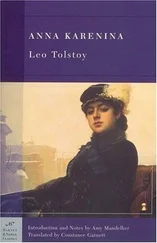The principal qualities in Stepan Arkadyich that had gained him this universal respect consisted, in the first place, of his extreme indulgence for others, founded on a consciousness of his own shortcomings; secondly, of his perfect liberalism-not the liberalism he read of in the papers, but the liberalism that was in his blood, in virtue of which he treated all men and their machines perfectly equally and exactly the same, whatever their fortune or calling might be; and thirdly-the most important point-his complete indifference to the business in which he was engaged, in consequence of which he was never carried away, and never made mistakes.
Stepan Arkadyich arrived at his place of work and looked adoringly up at the massive onion-shaped bulb that rotated slowly atop the Tower, forever scanning Moscow’s streets. “The Tower, she keeps her loving eye upon us,” went the saying, and indeed there was something decidedly ocular about the single round opening on one side of the giant rotating bulb, keeping its eternal, and eternally loving, watch over the city and her people.
Waiting for Stiva at the top of the stairs was the welcome sight of his old friend, Konstantin Dmitrich Levin.
“Why, it’s actually you, Levin, at last!” Stiva said with a friendly mocking smile, taking in Levin and his Class III as he bounded up the stairs toward them, Small Stiva clumsily following one step at a time. “Welcome to the Ministry!” As he uttered the words, both men crossed themselves and glanced upward, as if to heaven-the instinctual gesture of reverence for the most cherished of Russian institutions.
“How is it you have deigned to look me up in this den?” said Stepan Arkadyich, and not content with shaking hands, he kissed his friend. “Have you been here long?”
“I have just come, and very much wanted to see you,” said Levin, looking shyly and at the same time angrily and uneasily around. Stiva could now see Levin’s Class III, an oddly unpleasant-looking, tall, copper-plated humanoid called Socrates, hovering by his side. Ringing Socrates’ chin was an array of useful items-a knife, a corkscrew, a spring, a small shovel, and so on-which jangled on his neck like a thick beard of springs and cogs, and which he tugged as he also looked uneasily around, mimicking his master’s discomfited manner.
“Well, let’s go into my room,” said Stepan Arkadyich, who knew his friend’s sensitive and irritable shyness, and, taking his arm, he drew him along, the trigger-latch that caused the door to his inner office to open with an audible pneumatic gasp.
Levin was almost of the same age as Oblonsky, and had been the friend and companion of his early youth. They were fond of one another in spite of the difference of their characters and tastes, as friends are fond of one another who have been together in early youth. Their bond had been cemented when both boys were merely sixteen, unshaven lads not yet possessed of their Class IIIs. An UnConSciya trap called a godmouth had suddenly yawned open in a Moscow open-air vegetable market a few yards from where they were standing. Levin tackled Oblonsky, who had been obliviously eating a peach, and dragged him to safety before the other boy even realized that the terrible, glowing vortex had appeared. The near miss left a lasting impression on both boys, and guaranteed a lifelong brotherly friendship.
In spite of this bond, each of them, as is often the way with men who have selected careers of different kinds, despised the other’s career-though in discussion he would even justify it. It seemed to each of them that the life he led himself was the only real life, and the life led by his friend was a mere apparition, no more tangible than a communiqué relayed in the monitor of a Class III. Oblonsky could not restrain a slight mocking smile at the sight of Levin. How often he had seen him come up to Moscow from the country where he was doing something, but what precisely Stepan Arkadyich could never quite make out, and indeed he took no interest in the matter. Levin arrived in Moscow always excited and in a hurry, rather ill at ease and irritated by his own want of ease, and for the most part with a perfectly new, unexpected view of things. Stepan Arkadyich laughed at this, and liked it. In the same way Levin in his heart despised the town mode of life of his friend, and his official duties, which he laughed at, and regarded as trifling. But the difference was that Oblonsky, as he was doing the same as everyone did, laughed complacently and good-humoredly, while Levin laughed without complacency and sometimes angrily.
“We have long been expecting you,” said Stepan Arkadyich, going into his room and letting Levin’s hand go as though to show that here all danger was over. “I am very, very glad to see you,” he went on. “That is, to see both of you.”
Socrates bowed awkwardly. Stepan Arkadyich marveled, as he always did on greeting his friend’s Class III, at how different the machine was from his genial, pleasant little Small Stiva. But as they said, everyone gets the Class III that he deserves; such was the miracle of the technology that had created the beloved-companions. Companion robots were built-to-suit, their qualities created to match the needs of the recipient; some were glib and some grave; some reassuring and some critical; every one played the role in the life of the master that the master needed it to play.
“I have to sizzle a whole container of outmoded Ones,” Stiva said to his old friend. “Shall we take turns?”
“Ah, no,” said Levin, with his characteristic unsmiling awkwardness. “No, thank you.”
Oblonsky smiled and flicked a red switch on his desk, which caused a copper panel to slide open. From this hidden chamber he produced a sleek, handsome Ministry-issued Class I called a sizzler, a one-trigger shooting device for neatly destroying small robots. Then from a box beside his desk he took out the first of the Class Is slated for sizzling. They were simple I/Mouse/9s, household favorites for keeping one’s kitchen or backyard free of roaches and other pests. These were perfectly functional-indeed, as Oblonsky held it aloft by the tail, the I/Mouse/9 squeaked and looked around the room with its little glass eyes-but they were no longer desired for distribution, since the I/Mouse/10s had become available.
“Well, how are you?” asked Stiva, and zapped the Class I in its little lifelike face with the sizzler. The thing arced its back and dropped from his hand onto the desk. “When did you come? How is your groznium mine?” Levin was silent.
As it writhed on the desk, the mouselike automaton let out a loud, pained squeal. Stiva wrinkled his nose and shot Levin a helpless, apologetic smile.
“Makes conversation difficult, but it is in their circuits-they can’t help it.”
“They don’t feel pain?” asked Levin.
Stiva selected a second I/Mouse/9 and zapped it in the face. “What? Oh, yes. Certainly they do.” Levin said nothing, only shot a disapproving glance to Socrates, who flashed his dark-yellow eyebank and tugged at his cluster of springs.
“What brings you to our fair Babylon this time?” Stiva inquired with a wink, as he felt around in the box, finally snatching up another squirming I/Mouse/9.
“I have nothing very particular. Only a few words to say, and a question I want to ask you.”
“Well, say the few words, then, at once!”
Levin paused, unsure how to proceed, and turned to his companion android. Socrates regarded him sternly. “Just say it,” urged the Class III tinnily sotto voce.
“I cannot simply say it.”
“Can and must.”
“Do not badger me, Socrates.”
Stiva regarded this conversation with a sardonic expression, and looked knowingly at his own Class III, Small Stiva, who whirred with amusement.
Читать дальше












